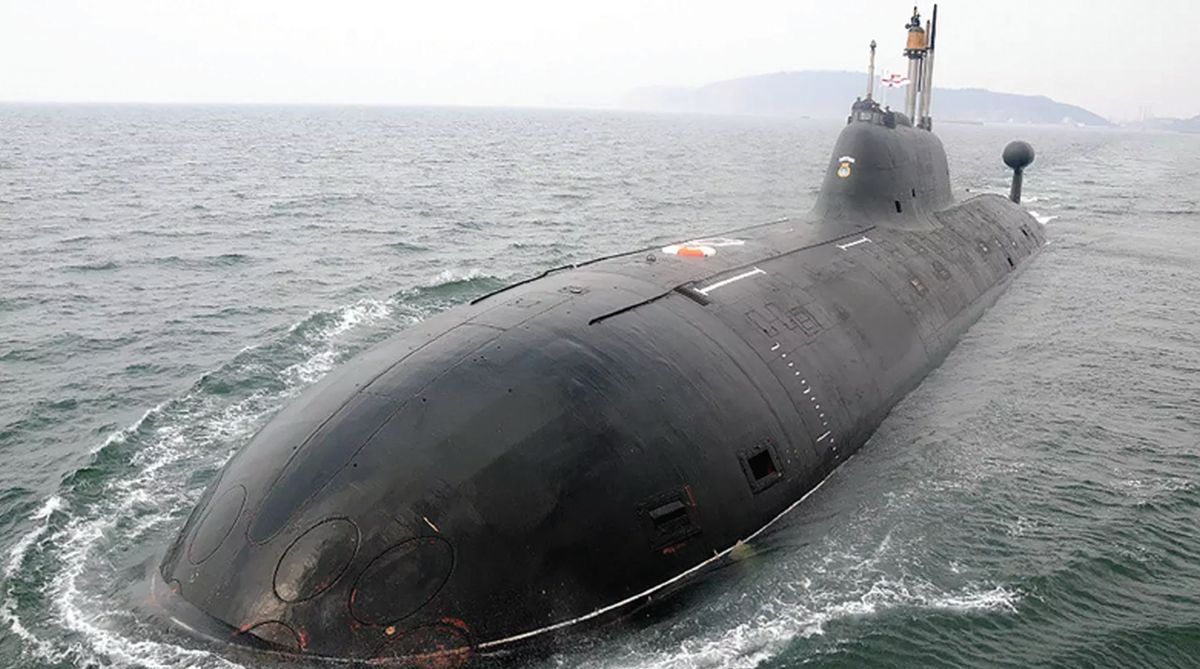China-made drone seized near India-Pak border in Punjab
Acting on a tip off, the BSF troops carried out an extensive search operation in the suspected area.

The completion of the first deterrence patrol by INS Arihant, India’s first home-developed, nuclear-powered submarine, completing the nuclear deterrence triad, procurement of the S400 missile systems from Russia and the induction of new heavy-calibre guns for the artillery are changing the balance of power in the subcontinent. There was immense criticism by Pakistan in every forum, including international gatherings, when India signed the S 400 missile deal.
They projected the shifting of balance of power in India’s favour leading to increased security concerns. Pakistan sought to suggest that the entire subcontinent was being impacted by security concerns. This was ignored by South Asian nations and the world community as they realised that apart from Pakistan, India has no adversary in South Asia.
Similar criticism flowed when INS Arihant was inducted into the service. The Pakistan foreign ministry spokesperson stated, “This development marks the first actual deployment of ready-to-fire nuclear warheads in South Asia. This is a matter of concern not only for the Indian Ocean littoral states but also for the international community at large.” In each case it projected its desire for peace as also its preparedness for war.
Advertisement
Pakistan has yet to comment on the induction of new artillery guns, which could change the equation in conventional operations as also crossborder violations. It permits the Indian army to strike deep into Pak territory hitting administrative bases and terrorist camps, which earlier could only be targeted by cross-border strikes as employing rockets or air power could add to escalation. The comment is likely to flow in the coming days, when these guns begin being deployed.
While Indian military power is aimed at deterrence from China, it is Pakistan which is panicking. The Pakistani armed forces are aware of India’s growing military might for conventional warfare as also its growing nuclear deterrence capability. However, their financial constraints have compelled them to counter the same by claiming deployment of tactical nuclear missiles. Their international standing has dropped to the level that assistance from all allies, including the US, has dried up forcing them to look at only China for support.
China is a ready provider for multiple reasons. Firstly, it must keep the Pakistan army in good humour. It is aware that its investments in the CPEC are secure provided it has the backing of the Pakistan army. Simultaneously, it cannot announce its true expenditure in the CPEC to the world as the Pakistani army has skimmed a part of the funds, almost terming it as a bribe for ensuring its continuity. Any action by Pakistan to limit the expansion of the CPEC would impact the power of Xi Jinping, as this project is the key to the Belt Road Initiative (BRI), which covers large parts of the globe.
Secondly, enhancing the military power of Pakistan would impact Indian defence expenditure as also its concentration of forces. As a result of Chinese support, diplomatic and military, India has always been forced to consider a two-front war. It has also provided Pakistan the confidence to continue pushing militants into Kashmir, keeping it destabilised.
As India restructures and modernizes its armed forces, it pushes Pakistan into a corner. Pakistan cannot bank on its so-called tactical nuclear weapons, as international pressure and swift Indian strikes may preclude their employment even within their own territory. The only option which it has is to run to the Chinese for near similar capabilities. Since it lacks financial stability including the ability to repay earlier loans, it may not get blanket Chinese support.
Pakistan is now moving towards the IMF for a bailout package, despite assistance already provided by Saudi Arabia and likely to be provided by China. The delay in China providing financial assistance is that it is bound to seek its pound of flesh, mainly ensuring the security and continuity of CPEC, where it has invested heavily. The IMF is bound to impose its own terms, some of which would be crippling and disadvantageous for the army including cutting down its defence expenditure.
The IMF terms would not be for a short duration but lengthy enough to pinch Pakistan. By curtailing the defence budget, it would restrict the ability of Pakistan to make new purchases to meet Indian capability expansion, adding to the growing gap. It could bank on Chinese largesse but the same would not be enough as repayment ability would be low.
The Pakistani army, which cannot be seen to be considered weaker as India continues to enhance military power, would be compelled to divert funds from other sources to meet its needs, seeking to hide these investments. These funds would impact social security services in Pakistan adding to problems of its population. While the ISI has complete control over the country and there are no voices which can criticise the actions of the army, internal rumblings against the government would rise.
One of the reasons for the collapse of the Soviet Union was it being pushed into an arms race with the US. It had to continue enhancing its military capabilities to ensure NATO remained at bay. It was forced into doing so, despite a vast gap in the economic status of the two countries. Thus, the arms race was unsustainable and broke the economy of the Soviet Union.
The Pakistan army has suffered in every war with India, hence is always concerned about Indian military power. It can never accept the fact that it can never compete militarily with India. The gap between the economies of India and Pak is similarly wide. Pushing Pakistan into an arms race, by continuing to enhance Indian military power may have a similar result as the breakup of the Soviet Union.
The writer is a retired Major-General of the Indian Army.
Advertisement